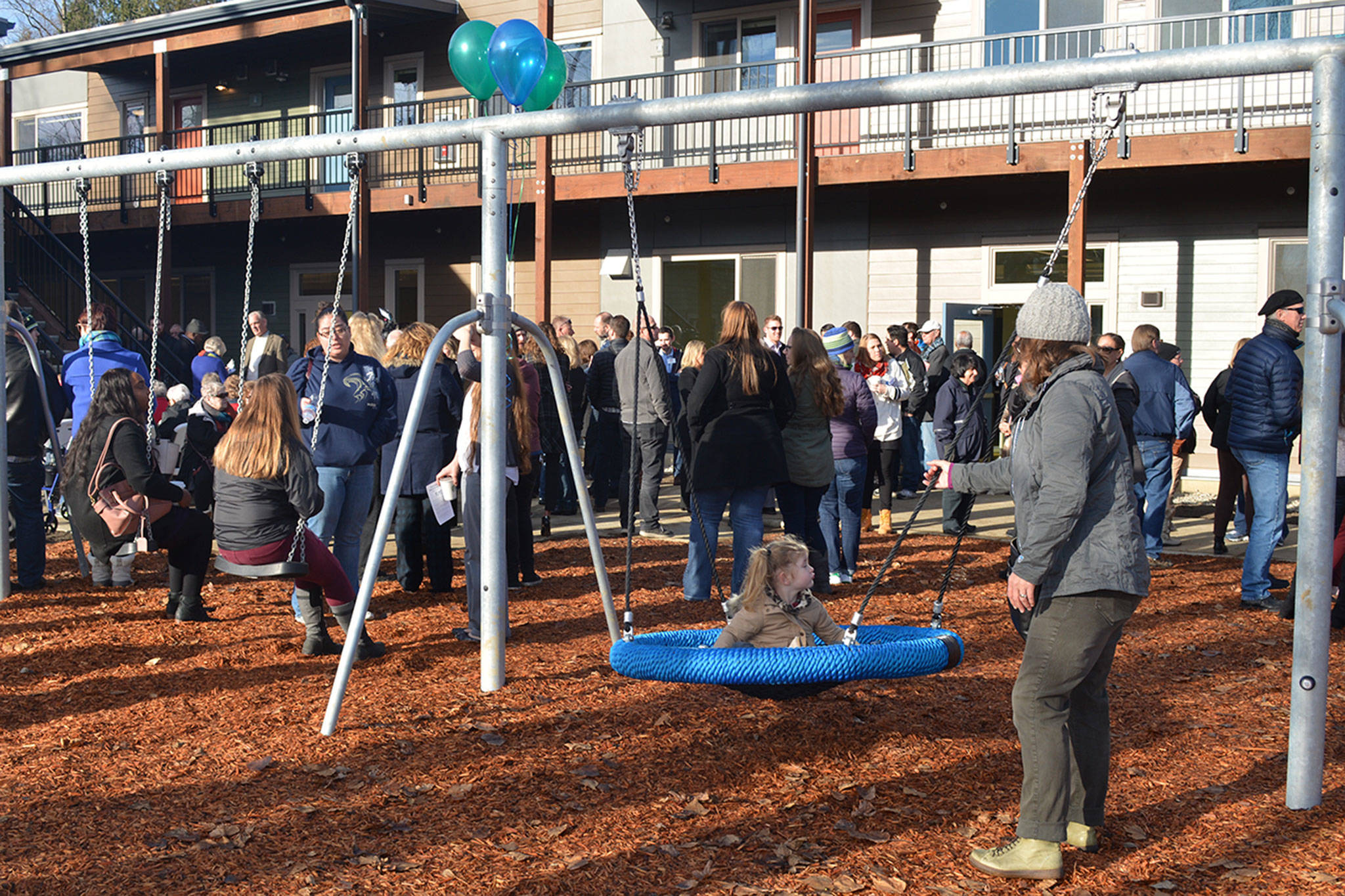MARYSVILLE – Fred Safstrom looked out at Twin Lakes. The calm water was smooth. On the cold yet sunny day the reflection of the surrounding trees was distinct.
“In this serene setting, I see peace and restoration,” he said.
How fitting that was as Safstrom, CEO for Housing Hope, was celebrating the opening of Twin Lakes Landing, which will house 38 formerly homeless people. Another 12 low-income folks also will live in the units. Not only do they get housing, they also receive education and training so that they will become self-sufficient. Classes include life skills, child development, job skills and employment support. Family support coaches give them one-one-one help.
“Jobs are key to getting out of poverty,” Safstrom said, adding classes also are available to those who don’t live there but reside elsewhere in north Snohomish County. The goal of the program is that the residents are able to move out on their own within a few years so others can take their place and receive the same help.
“Housing is where everything begins, but it’s not enough,” Safstrom said. “It’s not going to solve the long-term issue. We can’t build our way out of it.”
Safstrom and others talked about all the people who donated or otherwise helped in the project.
The city of Marysville reduced $64,000 in fees.
“This fills a need in the community,” City Council president Kamille Norton said.
The Tulalip Tribes donated $100,000 and have the community center there named in their honor. The Marysville Rotary Club stepped up with $5,000 at the end when it was needed. The county chipped in funds when the state did not. The bank that led financed the project was “dedicated to this for all the right reasons,” Safstrom said. “We can be passionate about it, but money’s a big part of it.”
Despite all of the donations, the project still had to be scaled back some from its original plan, said Bobby Thompson of Housing Hope.
“The budget faced cut after cut after cut,” said Julie Blazek of HKP architects. She said it was hard to change the scope because the project, “Tugs at the heartstrings.” Blazek said the design of a building is so important to how they “feel about themselves.” It can change them from individuals to a community, she added.
The project was new for Housing Hope because units are modular, built in Boise, Idaho. That allowed the project to be more affordable and done faster. With that experiencer, they now have the ability to provide more affordable housing in the future.
One challenge of the project was that the water table was only 7 feet down. “We didn’t want the residents to live in a pool,” Thompson joked. “We took enough water out of here to fill several Olympic-sized pools.”



